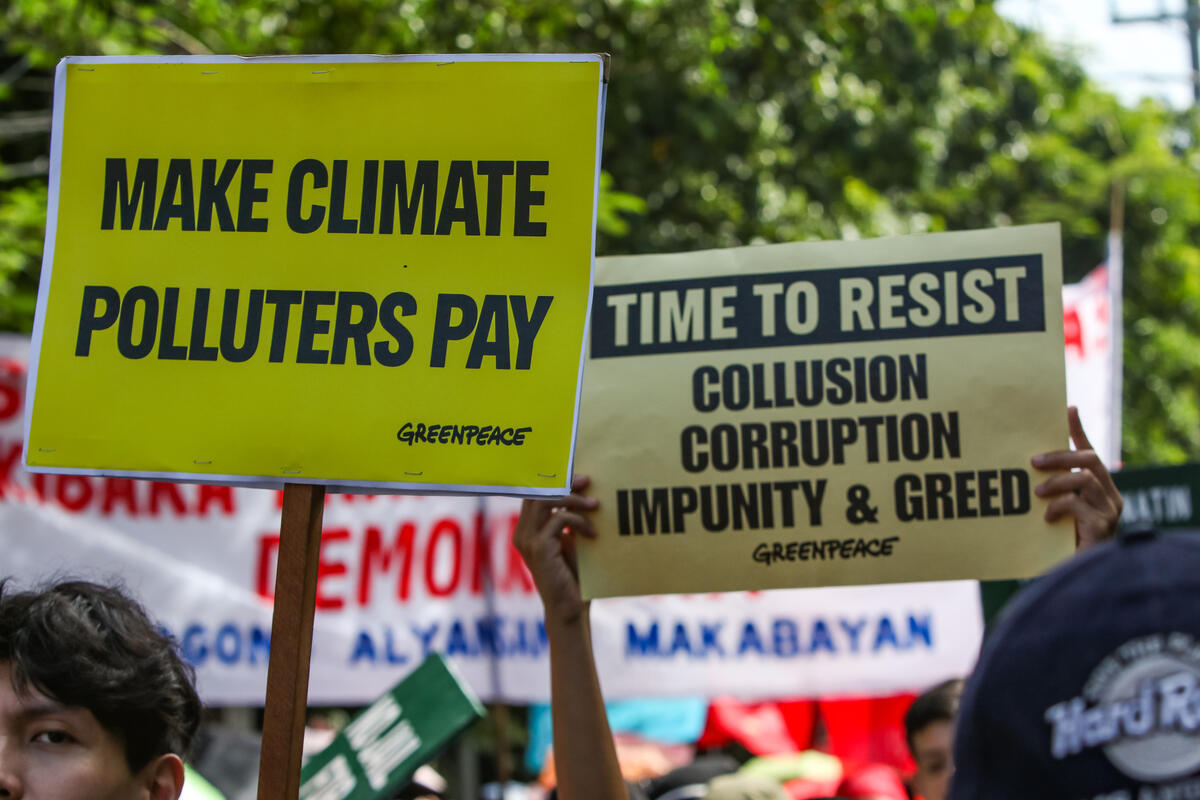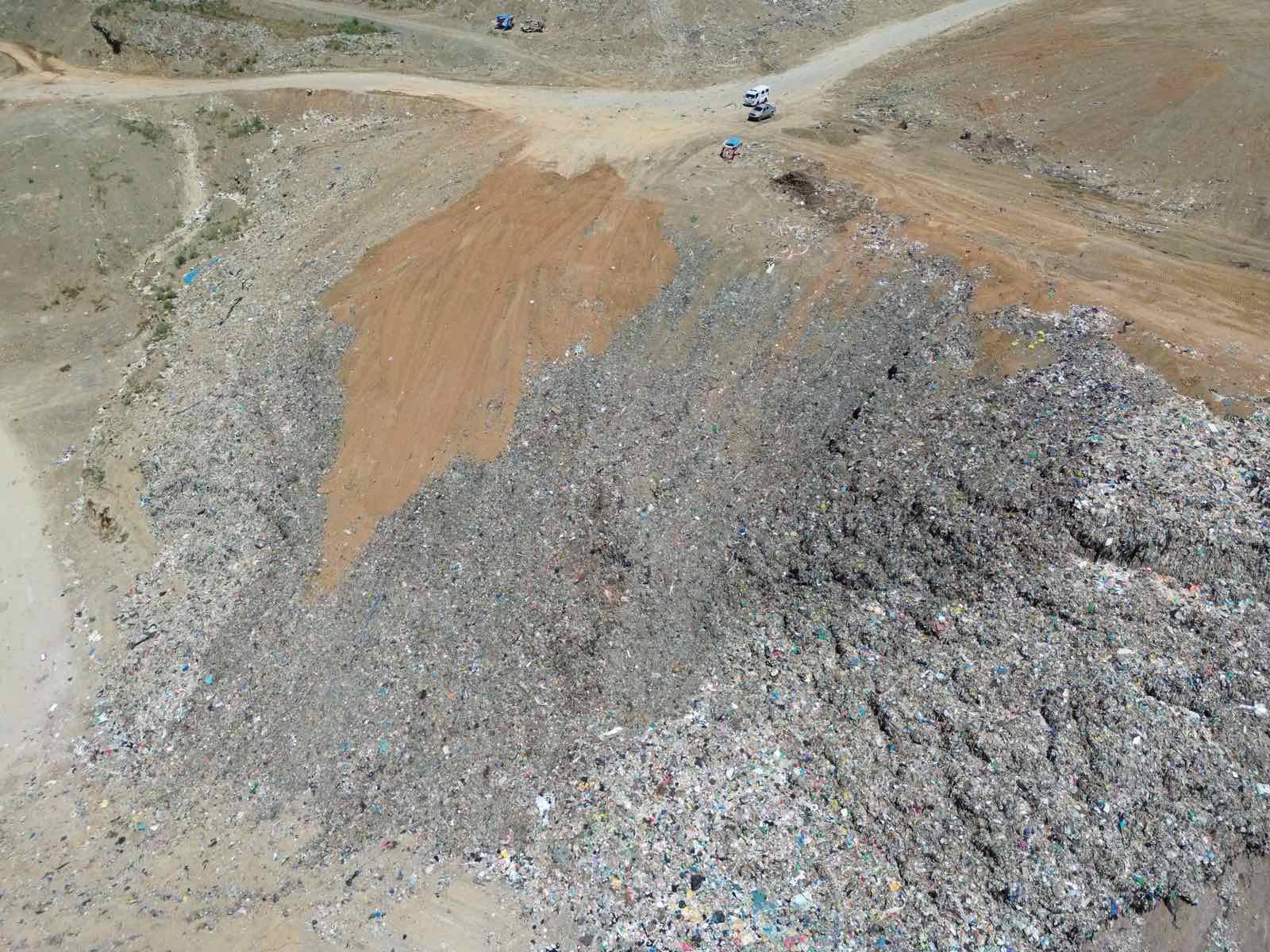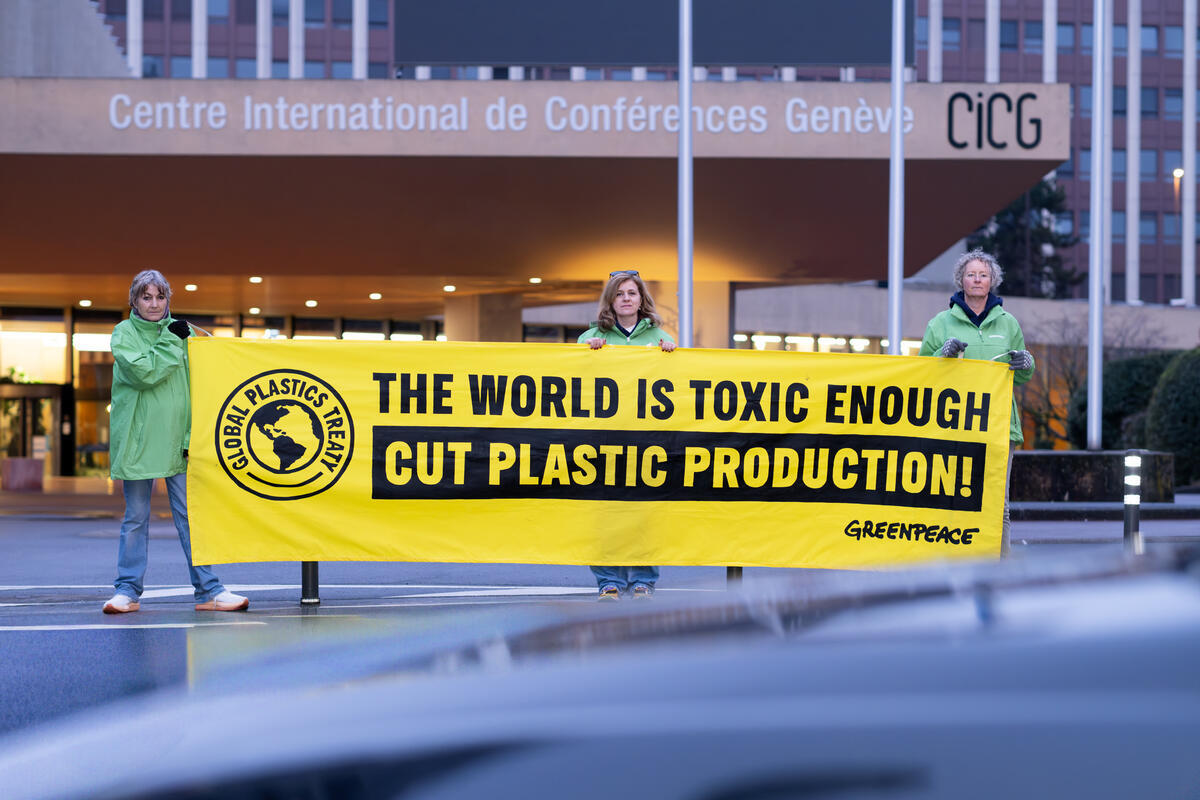Soon after I first joined Greenpeace in the 2010s, I realized I had a steep learning curve ahead of me. I just didn’t expect that learning eco-conscious living (weighing the environmental impact of everyday choices such as what to eat, bring, do, or throw away) would feel like such a crash course. Back then it was about walking the talk, as is expected of everyone in environmental campaigning. It felt mandatory, and I often felt obliged to be performative.
I still remember where the unease came from. I’d known quite a bit about how massive the climate crisis was and how deeply it’s tied to systems that were already failing us in the Global South. Basically, we’re just trying to survive the climate crisis and all other symptoms of unjust, oppressive systems, in an economy that limits our choices (do you know how insufferable it is to commute in Metro Manila, how dangerous it could be to bike, or how largely inaccessible and expensive plant-based meals are?) And yet somehow, we are the ones expected to go the extra mile to save the planet? That didn’t sit right with me.

This conflictedness only deepened as I learned more about the “grand narrative of guilt” pushed by corporations. These are tropes that are, when placed alongside reality, paradoxical at best (think recycling and carbon footprints — when only 9% of plastic waste has ever been recycled, and just 57 companies were responsible for 80% of global fossil fuel and cement-related CO₂ emissions from 2016 to 2022).
There should be no doubt that these narratives were designed to deflect responsibility for corporations’ massive environmental, social, cultural, and economic impacts and shift the attention onto us instead. After years of exposure, this messaging sticks in one’s head like the voice of a controlling, gaslighting ex: How much plastic packaging is in that bag of groceries? Was that vacation really worth the environmental cost of flying? You say you care about the planet, so why are you still eating meat?
Surely we wouldn’t want to play into the corporate guilt-tripping narrative. At one point, I wondered if the best act of defiance might be to live our most convenient lives unapologetically and focus all our energy on actions that more directly contribute to driving system change. By this, I mean civic and public engagement efforts such as signing petitions, joining protests, or voting for environmentally conscious leaders.
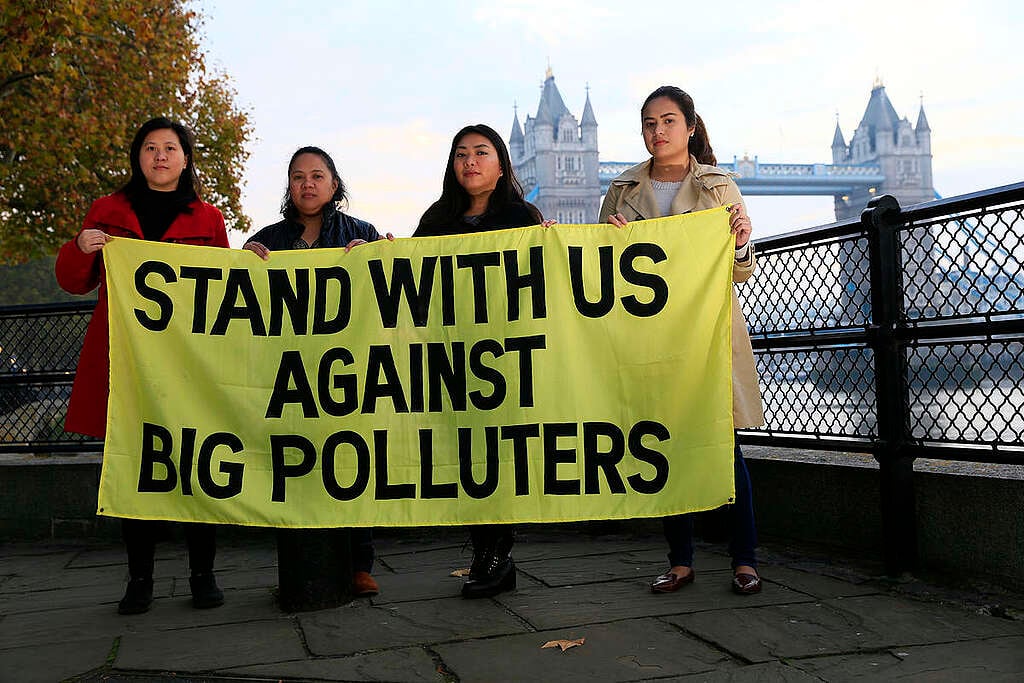
Survivors of Super Typhoon Haiyan (Yolanda) were in London to give personal testimonies at a landmark inquiry to determine whether the world’s largest carbon producers are violating the human rights of communities worst affected by climate change.
Yet one of our constant reminders at Greenpeace is this: every action counts. And each time I am reminded, I don’t doubt it. Perhaps because even though I know the narrative of individual responsibility is marred by greedy intentions, it still wouldn’t feel right to dismiss personal action completely. I’ve seen small actions spark change in people again and again, from a community leader forming a flood response group, to a youth activist organizing artivism workshops or meetups for exchanging climate stories.
Over time, I realized personal actions are not meant to carry the weight of the world, just as they’re not the end goal. Even so, when done consistently and taken as part of something larger, they are powerful and can push the needle toward systemic change, in more ways than one. Here are some little epiphanies on my end:
Habits can start or hasten culture shifts. Everyday habits like refusing single-use plastic, choosing to bike to work, or eating less meat can shift culture. Culture shifts don’t always have to start in boardrooms or policy halls. In fact, they usually begin in communities, where an individual or a group quietly leads by example, and challenges what’s normal.
A gateway to deeper engagement. Lifestyle shifts can lead to deeper involvement in the advocacy, especially as people seek like-minded friends and learn more about the issues. And the more they know about the campaigns, the more confident they become and the more willing to share their time and energy to the cause.
Walking the talk as a strategy. For many of us in environmental campaigning, walking the talk is not just a moral stance. It is a strategic choice that strengthens our credibility and demonstrates integrity. It shows that our demands for change are reflected in the way we live and act. This kind of alignment matters, and is also why we call on the national government to turn their climate pronouncements on the international stage into consistent and concrete action at home.
Igniting creative resistance. The saying “necessity is the mother of invention” holds true in movement building as well. When faced with challenges, including environmental ones, people find ways to be resourceful. They collaborate, adapt, and respond. And whether intentionally or not, many end up contributing through the skills, talents, and tools they have in support of collective action.
Reclaiming identity through agency. Realizing one’s agency often begins at a personal level. Along the way, individual actions can become a means to reconnect with culture and history, to affirm one’s values, and to commit to the kind of person one aspires to be. It also becomes a way of unlearning environmentally harmful practices promoted by corporations. For example, sari-sari store (small neighborhood store) owners who joined Greenpeace’s Kuha Sa Tingi project reconnected with the original Filipino “tingi” culture (the practice of buying goods in small, affordable, quantities) through reuse and refill systems.
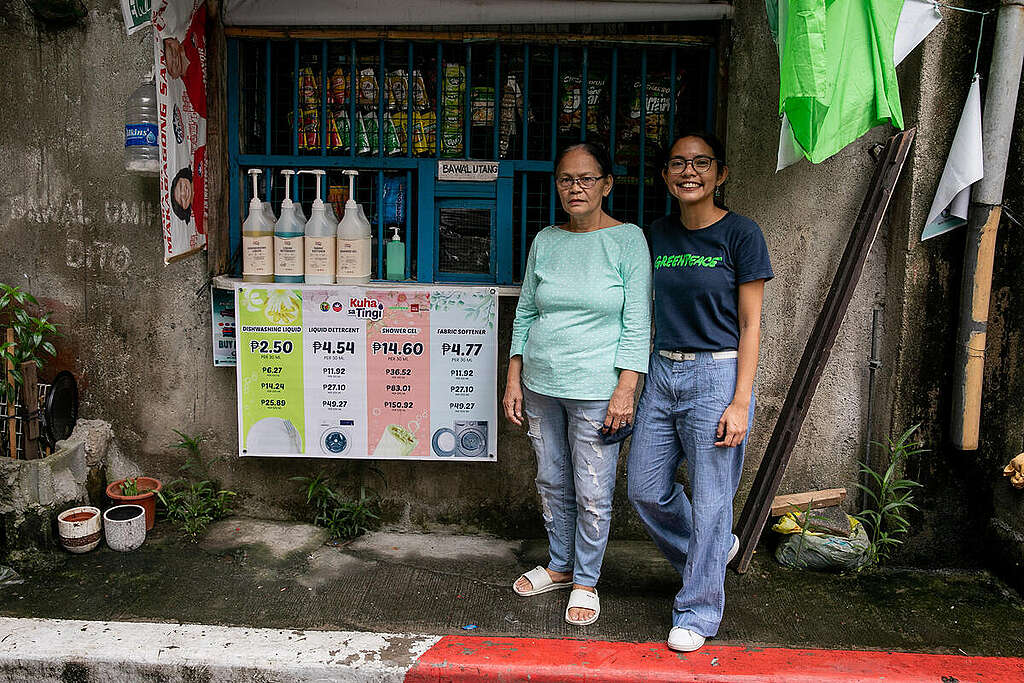
Making power listen. Collective personal actions can create pressure for decision-makers, institutions, and even corporations to act. They may not replace structural change, but they send clear signals, if not outright communicate, public demand for solutions which in due course can unlock systemic change.
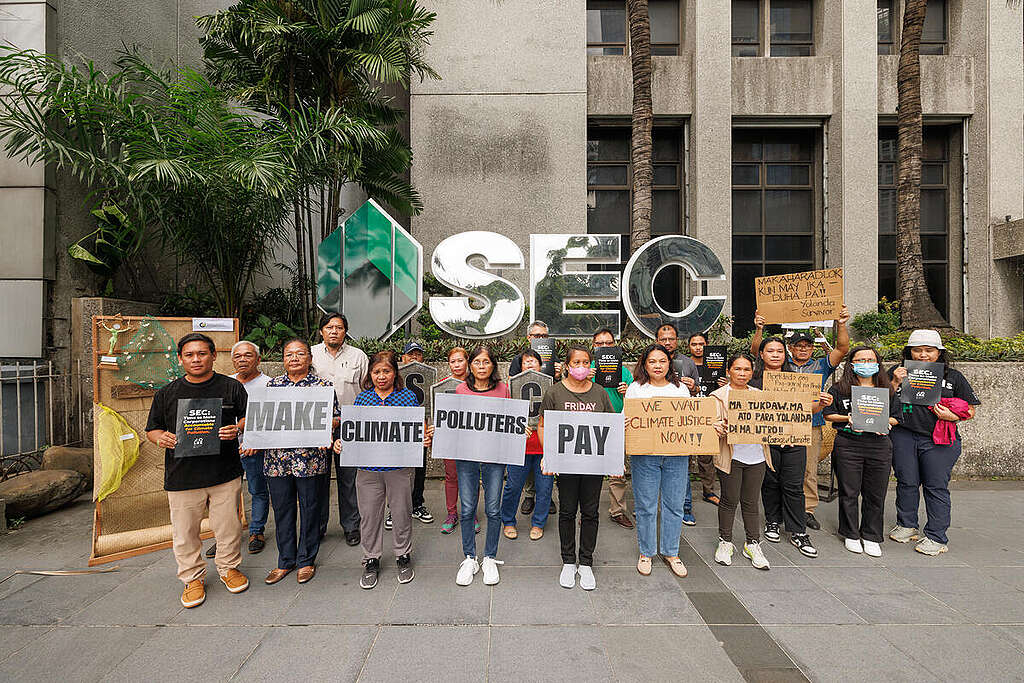
Check out Greenpeace Philippines’ Take Action page listing the different ways you can get involved in pushing for positive systemic change. Together, we can make change happen.
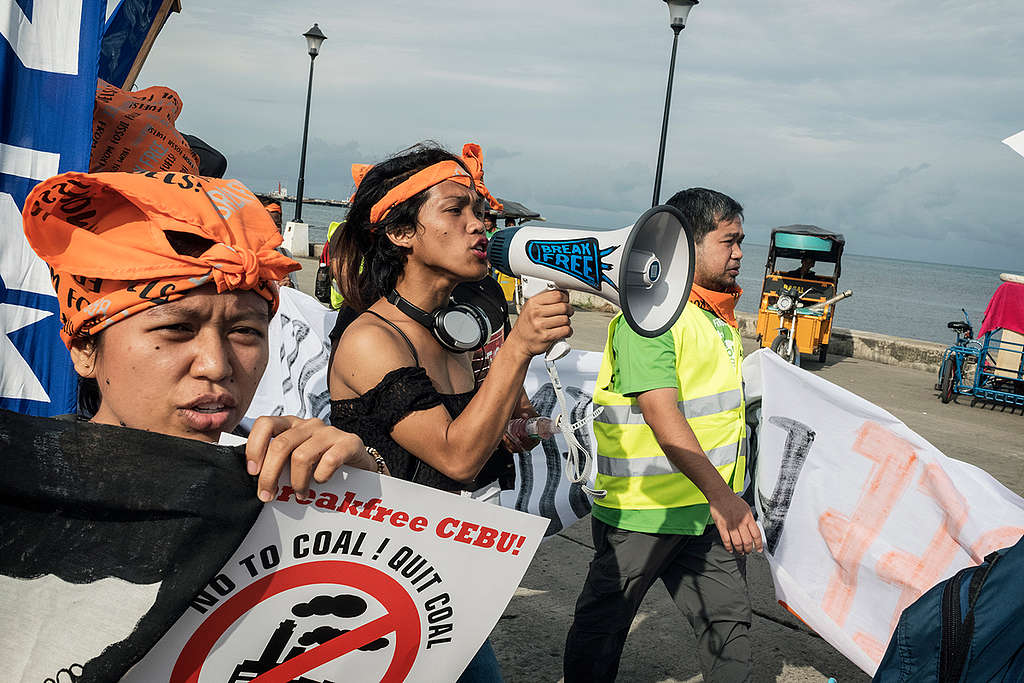
Be a Greenpeace eco-warrior by becoming a volunteer, donating, or signing a petition. Your actions have a huge impact. And by working together, we can build a green and sustainable world for all.
TAKE ACTION
